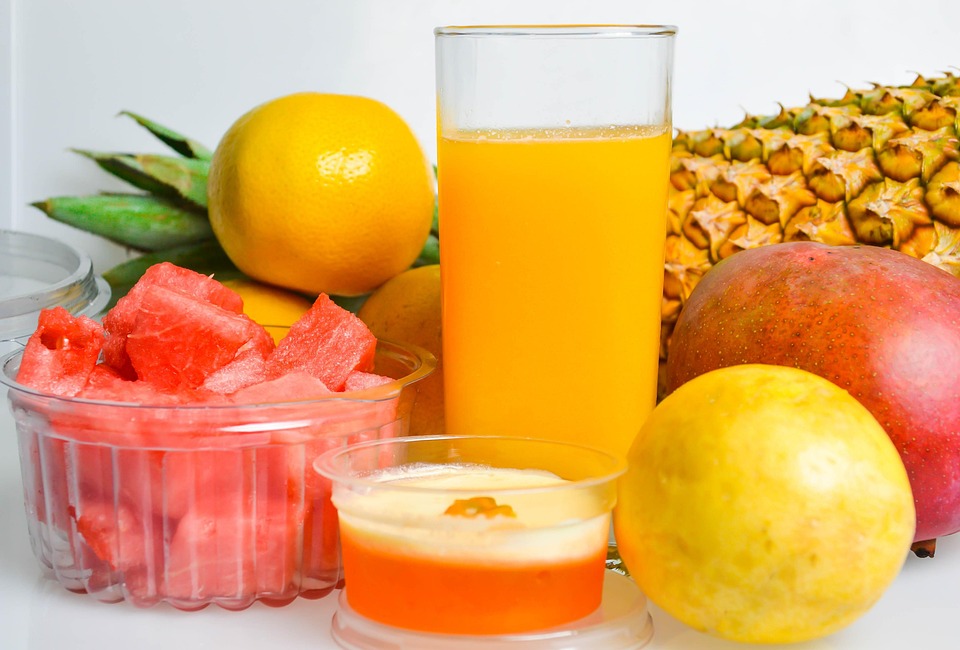Vitality in a Bottle: How Nutrition Drinks Can Enhance Senior Health
As society progresses, the emphasis on health and well-being—particularly among senior populations—increases dramatically. One of the most accessible and effective methods of improving health is through nutrition. Among various nutritional products available today, nutrition drinks have gained popularity for their convenience and concentrated benefits. This article explores how nutrition drinks can enhance senior health, discussing their nutritional components, benefits, potential downsides, and thoughtful recommendations.
Understanding Nutrition Drinks
Nutrition drinks, often referred to as meal replacements or supplements, are designed to provide essential vitamins, minerals, and macronutrients in a convenient liquid form. These beverages cater specifically to the dietary needs of individuals who may struggle to meet their nutritional requirements through whole foods alone, such as seniors facing issues of appetite, chewing, or digestion.
Types of Nutrition Drinks
-
High-Protein Drinks: These are specially formulated to provide a higher concentration of protein. They are critical for muscle maintenance and repair, especially in seniors facing sarcopenia—the age-related loss of muscle mass.
-
Meal Replacement Shakes: These drinks are designed as low-calorie options that replace a full meal. They often contain balanced amounts of carbohydrates, proteins, and fats, along with essential vitamins and minerals.
-
Fortified Drinks: Some nutrition drinks are fortified with additional nutrients, such as fiber, omega-3 fatty acids, or antioxidants. These components are often tailored to address specific health concerns prevalent among seniors.
-
Hydration Drinks: Staying hydrated is crucial for overall health, especially for seniors who may experience reduced thirst perception. Fortified hydration drinks can help maintain electrolytes and hydration.
The Nutritional Needs of Seniors
Understanding the unique nutritional requirements of seniors is critical for promoting health and improving quality of life.
Protein Needs
Protein plays a vital role in maintaining muscle mass, supporting immune function, and enabling various bodily processes. According to the Recommended Dietary Allowance (RDA), older adults may need approximately 1.2 grams of protein per kilogram of body weight. Failure to meet this requirement can lead to muscle wasting and its associated complications.
Vitamins and Minerals
With age, the body’s ability to absorb certain nutrients diminishes:
-
Vitamin D: Essential for bone health and calcium absorption, vitamin D levels often decline due to less outdoor activity and decreased skin synthesis.
-
Calcium: Critical for maintaining bone density, ensuring an adequate calcium intake can mitigate the risks of osteoporosis.
-
Vitamin B12: Important for cognitive functioning, older adults may require supplementation due to decreased absorption from food sources.
Hydration
Seniors are generally at a higher risk for dehydration due to medications, health conditions, and changes in kidney function. Ensuring optimal hydration can prevent cognitive and physical decline.
Benefits of Nutrition Drinks for Seniors
Nutrition drinks offer several benefits that can directly support the health and well-being of seniors.
1. Convenience and Accessibility
One of the most significant advantages of nutrition drinks is their convenience. They can be consumed anytime—whether at home or on the go—making them a practical choice for seniors who may not have the energy or ability to cook meals regularly.
2. Enhanced Nutrient Intake
Many nutrition drinks are specifically designed to provide a balanced nutrient profile in a single serving. This can substantially enhance the overall nutrient intake for seniors who may struggle to maintain a balanced diet due to appetite changes or difficulty in chewing.
3. Muscle Health Support
With a focus on high-protein formulations, many nutrition drinks can help seniors maintain muscle mass and strength. Regular intake of these beverages may aid in combating sarcopenia, leading to improved functionality and mobility.
4. Improved Immune Function
Often fortified with vitamins and minerals like vitamin C and zinc, many nutrition drinks can support immune function, helping seniors to ward off infections and illnesses.
5. Cognitive Support
Some nutrition drinks contain omega-3 fatty acids or B vitamins, both of which are associated with cognitive health. Regular consumption may support brain function and protect against cognitive decline.
Potential Downsides of Nutrition Drinks
While nutrition drinks can be beneficial, there are several considerations and potential downsides to be mindful of:
1. Overreliance
Seniors might become overly reliant on nutrition drinks, neglecting whole foods that offer additional health benefits. A varied diet is essential for optimal health, and drinks should complement, not replace, meals.
2. Sugar and Caloric Content
Many commercially available nutrition drinks contain high levels of sugar. Conscious choices must be made to avoid those drinks that may contribute to uncontrolled blood sugar levels, particularly in individuals with diabetes or other metabolic conditions.
3. Cost Implications
Nutrition drinks can be more expensive per serving compared to whole foods. While they offer convenience, the cost may limit accessibility for low-income seniors.
4. Limited Dietary Variety
Though many drinks are fortified, they cannot entirely replace the broad spectrum of nutrients found in a varied diet. Seniors should be encouraged to consume nutrition drinks alongside a range of whole foods.
Recommendations for Choosing Nutrition Drinks
When selecting nutrition drinks, seniors and caregivers should consider the following factors:
1. Nutritional Label Review
Prioritizing drinks with high protein content, low added sugars, and a good balance of essential vitamins and minerals can ensure optimal health benefits. It may also be beneficial to choose brands that offer clear labeling regarding allergen information and ethical sourcing.
2. Consultation with a Healthcare Provider
Before introducing nutrition drinks into a senior’s diet, it’s essential to consult with a healthcare provider or dietitian. They can offer individualized recommendations based on specific health conditions or dietary requirements.
3. Taste and Flavor Variability
Choosing beverages that align with personal taste preferences can promote regular consumption. Many brands offer various flavors, and trying out different options can help identify the most enjoyable choices.
4. Consideration of Dietary Restrictions
Seniors with dietary restrictions due to allergies or chronic conditions should choose drinks that accommodate their needs. For example, vegan options are available for those who abstain from animal products.
5. Regular Monitoring
Ongoing monitoring of health and nutritional status is crucial. Seniors and caregivers should track any changes in health, weight, or appetite following the inclusion of nutrition drinks in the diet.
Inspiring Case Studies: Success Stories
Several anecdotal success stories highlight the positive impact of nutrition drinks on senior health:
Case Study 1: Building Muscle Mass
An 82-year-old woman named Margaret discovered that she had lost significant muscle mass due to a lack of appetite. After consulting with a dietitian, she began incorporating a high-protein nutrition drink into her daily routine. After several months, Margaret noticed an improvement in her strength and mobility, allowing her to engage in activities she once enjoyed, like gardening.
Case Study 2: Immune Function Enhancement
James, a 76-year-old man with a history of respiratory infections, started drinking a fortified nutrition beverage that contained added vitamin C and zinc. Over the course of a year, his frequency of illness decreased significantly, and his healthcare provider attributed this improvement, in part, to the introduction of nutrient-rich beverages.
Conclusion: A Pathway to Vitality
Nutrition drinks offer a practical solution for maintaining and enhancing health among seniors. Their convenience, concentrated nutrient profiles, and ability to address specific dietary needs make them an attractive option. However, it’s essential to use these beverages as part of a broader, balanced approach to nutrition that emphasizes whole foods and healthy eating habits.
By understanding the benefits, potential downsides, and choosing the right products, seniors can harness the vitality found in a bottle—encouraging robust health and a renewed zest for life. As we navigate an aging population, making informed nutrition choices enhances not only individual health but also the overall quality of life for our seniors, empowering them to thrive in their golden years.
Modern Footnotes
- Holick, M. F. (2010). Vitamin D deficiency. The New England Journal of Medicine, 362(3), 191-192.
- Volpi, E., Nazemi, R., & Fujita, S. (2013). Amino Acids and Proteins in the Promotion of Healthy Aging. Clinical Nutrition, 32(5), 658-661.
- Vellas, B., et al. (2013). Nutrition in the elder population: A holistic review. Public Health Nutrition, 16(6), 936-944.
- Moyer, V. A. (2012). Vitamin D and calcium: a systematic review of health outcomes. Annals of Internal Medicine, 157(9), 686-692.
- McGowan, L., et al. (2010). The role of nutrition in aging: The intersection of diet, lifestyle, and health. American Journal of Clinical Nutrition, 91(6), 1335S-1342S.


























Add Comment